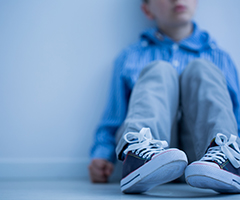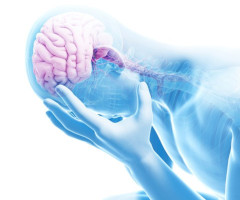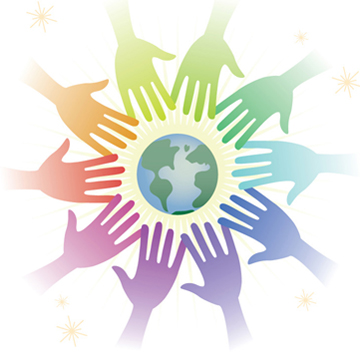Depression in Adults: Symptoms, Types, and Treatments

Depression, also known as major depression, major depressive disorder, or clinical depression, is a widespread but severe mental health disorder. Depression in adults disrupts an individual’s daily life, normal functioning, and can cause immense emotional pain for the person affected and their loved ones. Recognizing the symptoms and understanding treatment options is crucial for early identification and management, potentially reducing or alleviating depressive symptoms.
Symptoms of Depression
Occasional feelings of sadness are normal, but depressive disorder symptoms persist for weeks, months, or even years, significantly interfering with daily life. This disruption affects various aspects of life, including hobbies, work, social interactions, and relationships. Depression can impact anyone, regardless of age, gender, social class, or culture.

Symptoms of depression can include:
- Persistent sadness, tearfulness, emptiness, or hopelessness
- Angry outbursts, irritability, or frustration over minor issues
- Loss of interest or pleasure in most or all normal activities
- Sleep disturbances, including insomnia or excessive sleeping
- Fatigue and lack of energy
- Changes in appetite and weight, either loss or gain
- Anxiety, agitation, or restlessness
- Slowed thinking, speaking, or body movements
- Feelings of worthlessness or guilt, self-blame, and fixation on past failures
- Difficulty concentrating, making decisions, or remembering details
- Recurrent thoughts of death, suicidal thoughts, or suicide attempts
- Unexplained physical issues, such as back pain or headaches
Forms of Depressive Disorders
Depression is complex, with several forms:
- Major Depressive Disorder: Characterized by a combination of symptoms that interfere with an individual’s ability to work, sleep, study, eat, and enjoy previously pleasurable activities. Episodes can occur once or recur throughout life.
- Dysthymic Disorder: A long-term (2 years or more) depression with less severe symptoms than major depression. It may not disable a person but can prevent normal functioning and well-being.
Other forms include:
- Psychotic Depression: Severe depression accompanied by psychosis, such as hallucinations or delusions.
- Postpartum Depression: A major depressive episode occurring within one month after childbirth, affecting 10% to 15% of new mothers.
- Seasonal Affective Disorder (SAD): Depression that occurs during winter months due to reduced sunlight exposure, usually improving in spring and summer. Light therapy, antidepressant medication, and psychotherapy can help manage SAD.
Conventional Treatment Options for Depression
Early treatment of depression is crucial for effectiveness and reducing recurrence. The most common treatment approaches are medication and psychotherapy.

Medication
Antidepressants are the primary class of medications used to treat depression, helping to normalize neurotransmitters like serotonin, norepinephrine, and dopamine, which regulate mood.
- Selective Serotonin Reuptake Inhibitors (SSRIs): The most commonly used antidepressants, including fluoxetine (Prozac), citalopram (Celexa), and sertraline (Zoloft). SSRIs block the reabsorption of serotonin in the brain, improving mood.
- Serotonin and Norepinephrine Reuptake Inhibitors (SNRIs): Similar to SSRIs, including venlafaxine (Effexor) and duloxetine (Cymbalta).
- Monoamine Oxidase Inhibitors (MAOIs): Including isocarboxazid (Marplan), phenelzine (Nardil), and tranylcypromine (Parnate). MAOIs prevent the breakdown of monoamines, increasing their availability in the brain. MAOIs require dietary restrictions to avoid high levels of tyramine, which can cause a dangerous increase in blood pressure.
- Tricyclic Antidepressants: Including amitriptyline (Elavil) and imipramine (Tofranil), these drugs block the reabsorption of serotonin and norepinephrine.
Common side effects of antidepressants include headaches, nausea, insomnia, agitation, and sexual problems.
Psychotherapy Treatment Options
Psychotherapy helps individuals identify and address psychological, behavioral, interpersonal, and situational factors contributing to their depression. Effective for mild to moderate depression, various psychotherapy options include:
- Cognitive Behavioral Therapy (CBT): Based on the idea that psychological problems stem from faulty thinking and learned unhelpful behaviors. CBT teaches new ways of thinking and behaving, helping individuals change negative patterns contributing to depression.
- Interpersonal Therapy (IPT): Focuses on improving relationship skills and resolving conflicts that may contribute to depression.
- Social Skills Training: Helps individuals improve verbal and nonverbal social interactions to build healthy relationships.
- Psychodynamic Therapy: Focuses on unconscious processes and how they manifest in present behavior, helping individuals address unresolved conflicts and past experiences.
- Supportive Psychotherapy: Involves listening to clients in a nonjudgmental environment, helping them share and process their feelings and concerns.
- Behavioral Activation Therapy: Encourages setting goals and engaging in pleasurable activities to reduce depressive symptoms.
- Couples Therapy: Helps improve relationships by addressing roles and expectations, especially when depression affects one or both partners.
- Support Groups: Provide a sense of community and shared experiences, helping individuals realize they are not alone and offering coping strategies and resources.
Online Resources
Numerous reputable websites, chat rooms, and online resources offer support for people with depression. These platforms provide access to help at any time, ensuring individuals receive timely support and information.
Conclusion
Depression in adults is a severe mental health disorder that affects millions worldwide. Recognizing its symptoms and understanding the various forms and treatment options can lead to early intervention and effective management. With the right combination of medication, psychotherapy, and support, individuals with depression can lead fulfilling and productive lives.
Continue Your Education
To learn more about the symptoms, forms, and treatment of depression, check out our Certificate in Depression or take the individual course on Depression in Adults.
Depression Series
Post 1 of 4







